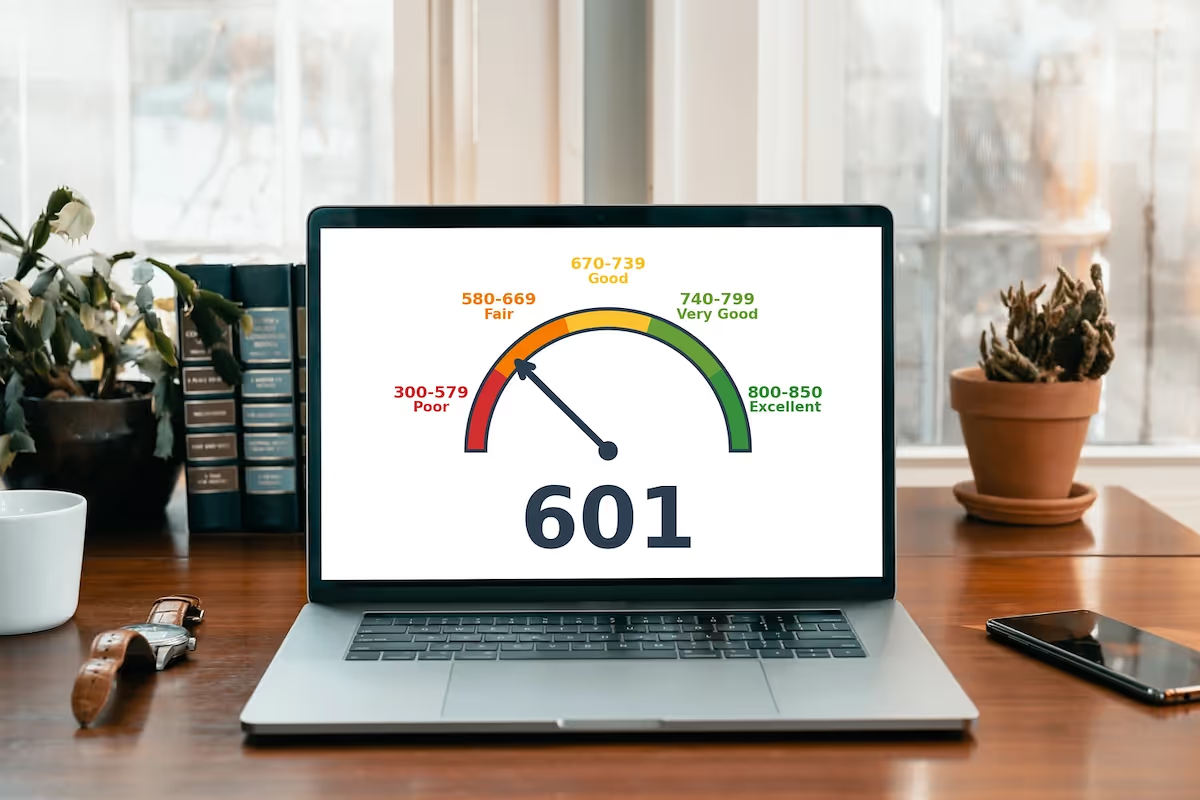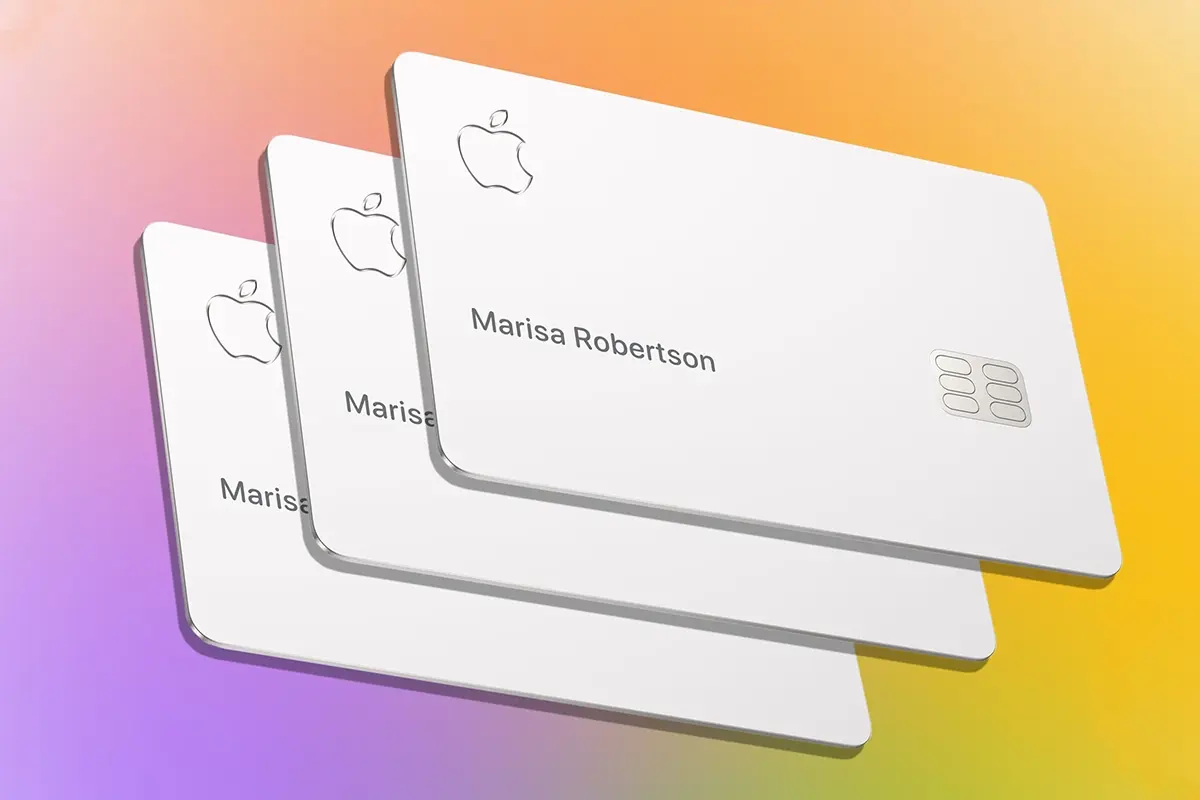
Kudos has partnered with CardRatings and Red Ventures for our coverage of credit card products. Kudos, CardRatings, and Red Ventures may receive a commission from card issuers. Kudos may receive commission from card issuers. Some of the card offers that appear on Kudos are from advertisers and may impact how and where card products appear on the site. Kudos tries to include as many card companies and offers as we are aware of, including offers from issuers that don't pay us, but we may not cover all card companies or all available card offers. You don't have to use our links, but we're grateful when you do!
601 Credit score: What You Need to Know in 2025
July 1, 2025


TL;DR
A 601 credit score is a significant step on your financial journey, placing you in a position to build toward better borrowing opportunities. This score is categorized as 'Fair' by FICO, serving as a solid foundation for improving your credit health.
What Does a 601 Credit Score Mean?
A FICO score of 601 lands you squarely in the "fair" credit range, which typically spans from 580 to 669. While it's a step above the "poor" category, lenders may still view this score as a sign of some risk. This perception can translate to higher interest rates on loans and credit cards, or make it more challenging to get approved for new credit. It signals to financial institutions that they may need to look closer at your credit history.
The good news is that a 601 score is not a permanent label. It's a foundation from which you can build a stronger credit profile. You're positioned on the edge of the "good" credit tier, and consistent, positive financial habits can open the door to more favorable borrowing terms and greater financial flexibility in the future.
Who Has a 601 Credit Score?
- Generation Z (ages 18-26): The youngest adult cohort holds an average FICO score of 680.
- Millennials (ages 27-42): With a bit more time to build their credit files, millennials have an average score of 690.
- Generation X (ages 43-58): Hitting their peak earning years, Gen X sees their average credit score rise to 709.
- Baby Boomers (ages 59-77): Benefiting from decades of credit management, baby boomers boast an average score of 745.
- Silent Generation (ages 78+): The highest average score belongs to the Silent Generation at 760, according to a 2023 Experian analysis.
Credit Cards With a 601 Credit Score
A credit score of 601 falls into the "fair" credit range for most scoring models, placing you in a tricky spot when applying for new credit. While approval isn't out of the question, lenders may view your application as higher risk, often leading to rejections for premium rewards cards or cards with the most favorable terms. If you are approved, you'll likely face higher interest rates and lower credit limits than someone with a good or excellent score.
Kudos can help you navigate this landscape with its AI-powered tools designed to find the right card for your specific situation. Their Explore Tool uses a quiz to understand your financial goals, while the Dream Wallet analyzes your spending to provide personalized recommendations and insights into a new card's potential impact on your credit.
Auto Loans and a 601 Credit Score
A 601 credit score places you in the non-prime borrower category, meaning that while you can likely get approved for an auto loan, you will face higher interest rates. Lenders view this score as having a higher risk, resulting in less favorable loan terms compared to applicants with better credit.
- Super-prime (781-850): The average auto loan interest rates are 5.25% for new cars and 7.13% for used cars.
- Prime (661-780): Average rates are 6.87% for new cars and 9.36% for used cars.
- Non-prime (601-660): Average rates are 9.83% for new cars and 13.92% for used cars.
- Subprime (501-600): Average rates are 13.18% for new cars and 18.86% for used cars.
- Deep subprime (300-500): Average rates are 15.77% for new cars and 21.55% for used cars.
Mortgages at a 601 Credit Score
With a 601 credit score, your main path to homeownership is likely an FHA loan. According to mortgage requirements, FHA guidelines allow scores as low as 580 with a 3.5% down payment, making you eligible. However, you probably won't qualify for a conventional loan, which typically requires a minimum score of 620. While some VA or USDA lenders might consider your application, most also prefer scores of 620 or higher.
A 601 score will also affect your loan terms. You can expect higher interest rates and more expensive mortgage insurance premiums on an FHA loan. Lenders will also apply stricter underwriting, meaning they will examine your finances more closely and may require more documentation to approve your loan.
What's in a Credit Score?
Figuring out what goes into your credit score can feel like trying to solve a complex puzzle, but it generally boils down to a handful of key elements. The most common factors include:
- Your history of making payments on time is the most significant factor.
- How much of your available credit you're currently using, known as your credit utilization ratio, plays a major role.
- The age of your credit accounts, including the average age and the age of your oldest account, is also considered.
- Lenders like to see that you can responsibly manage different types of credit, such as credit cards and loans.
- Opening several new credit accounts in a short period can be seen as a risk and may temporarily lower your score.
How to Improve Your 601 Credit Score
Your credit score plays a crucial role in your financial life, but it's not set in stone. While improving your score takes consistent effort, there are proven methods to boost your creditworthiness and build a healthier financial profile.
- Monitor your credit reports. A 601 score could be dragged down by errors, and regularly checking your reports allows you to spot and dispute inaccuracies for a potential score increase. This also helps you track your progress and see which positive habits are making an impact.
- Set up automatic bill payments. Payment history is the single biggest factor in your credit score, so even one late payment can be damaging. Automating payments ensures you never miss a due date, which is a foundational step to building a positive payment history and moving beyond a 601 score.
- Lower your credit utilization ratio. High balances on your credit cards can signal risk to lenders and significantly lower your score. Paying down your debt to keep your utilization below 30% demonstrates responsible credit management and can provide a substantial boost to your score.
- Become an authorized user. If you have a trusted friend or family member with a strong credit history, being added to their account can help your score. Their history of on-time payments and low credit utilization gets added to your report, which can help build your credit file.
As you work to improve your score, using a tool like Kudos can help you manage your credit cards more effectively.
Unlock your extra benefits when you become a Kudos member

Turn your online shopping into even more rewards

Join over 400,000 members simplifying their finances

Editorial Disclosure: Opinions expressed here are those of Kudos alone, not those of any bank, credit card issuer, hotel, airline, or other entity. This content has not been reviewed, approved or otherwise endorsed by any of the entities included within the post.



































.webp)





.webp)

